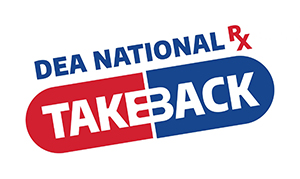When I first heard about the film, Painkiller, I became almost obsessed with seeing it. Not only does it star one of my favorite people on this planet, Bill Oberst, Jr., but it is also about a subject that I am extremely passionate about—the current opioid epidemic. Sure, it’s a revenge thriller about a man getting even with the people he feels is responsible for his daughter’s death, but the underlying current of her cause of death—an overdose of painkillers. Knowing that the film was inspired by Tampa Attorney and Scriptwriter Tom Parnell’s own experiences with his son makes Painkiller all the more of an important watch. When I was offered the chance to speak with both Bill and Tom about this project, I jumped at the chance.
PopHorror: Thank you guys for talking to me today! Let’s talk about Painkiller. I have seen it, and I think it’s a strong film with an important message. I was wondering if you could talk about the inspiration for the film a bit, Tom?
Tom Parnell: You want to talk about my son? Sure. On December 23, 2017, he had flown out to Reno because my daughter had moved here, and he came to spend Christmas. It was the 23rd when I got a call that morning from my daughter saying he was gone. I still know where I was standing. My girlfriend was there. It was the worst moment of my fucking life. I thought the world was over. I couldn’t believe it. It was like this weird dream that I was going to wake up from because I’ve had it many times since then. In any event, I had to fly out, which was the longest plane ride of my life.
The thing is, when they ask me about my son… he was such a great kid. I belong to a Facebook page called GRASP which is primarily for people who have lost children to overdose. I read the stories every day and try to give some hope and consolation for the parents. There are so many of them that had battled addiction, and I get that. But my son wasn’t an addict in the typical sense of the word. Was he on his way to becoming that? Possibly. But I didn’t know of any prior opioid use. I knew he had been prescribed them before. He was a baseball player with various injuries over the years and was prescribed them in college. And, of course, the doctors, no matter what age, will prescribe them to you. So I don’t know when the addiction really started. Honestly, I don’t know if he was really addicted, although I do know that he was having problems with alcohol. He was 22. He was in his last year in college. And I was thinking back to when I was a Senior. My God, did I ever drink. So I didn’t interfere with that too much, but I didn’t know about this shit, you know?
The statistics that I wrote in the script that Bill portrayed so well and admirably… what I didn’t want to do was make it a documentary. That’s why we attached it to this killer just to entertain people. Certainly, we’re not advocating that. But I’ve not only lost my son, I’ve lost two good friends, one before and one after him. Bill’s lines in the movie about the guy who had the knee replacement, never took a drink, never took a drug… you can become addicted to this crap in five days is what the National Statistics say. And [my friend] was having trouble with his knee replacement, and then I don’t talk to him for a couple of weeks, and the next thing I know, his dad called me and said he was gone. He had taken too many and had fallen asleep, which is what happened to my son. I don’t know how many [my son] took. I saw the autopsy results. It was that and alcohol. It was the same with Dean. They fall asleep, and their heart stops. They just stop breathing. It just shuts everything down. And that’s what happened. That’s how he died. They found him the next morning…

My poor daughter. I don’t know how she’s dealing with this. I didn’t have to see it, and I didn’t have to experience any of it other than the news, but she did. I just can’t imagine. I’m screaming, “Give him mouth-to-mouth!” Because I don’t know how long he’s been gone. And she tried that. So, think of that. Think of her reliving that in her mind. But he was stiff already. He was turning blue. He was already gone.
I bought an entertainment company that he was eventually going to run. He was about to graduate from the University of Tampa. He was going to move in with me. His life was just starting…. and it was over, just like that.
PopHorror: I think the most frustrating part of the entire thing—the opioid crisis in a nutshell—is that any doctor is allowed to prescribe opioids. There’s no limit, and like you said, they can give them to whomever they want. But should someone become addicted, to get something like Suboxone [a combination medication containing buprenorphine and naloxone, is one of the main medications used for medication-assisted therapy (MAT) for opiate addiction. Suboxone works by tightly binding to the same receptors in the brain as other opiates, such as heroin, morphine, and oxycodone. By doing so, it blunts intoxication with these other drugs, it prevents cravings, and it allows many people to transition back from a life of addiction to a life of relative normalcy and safety.] to come off of the addiction is something only specific doctors can prescribe. So a doctor can inadvertently get you addicted and then turn around and not have the ability to help you get off of it at all. And the doctors that can prescribe it are only allowed so many patients at a time. So, you think about how many people are out there waiting, and they can’t get help. So, what do you do? What are your options? You trusted the doctor and the medicine he or she gave you, and now it’s making you sick, but no one can do anything about it.
So Bill, you had to play a pretty angry person in Painkiller, a character full of rage. How did you get into that headspace?

Bill Oberst, Jr.: (laughs) I have zero problem playing an angry person. I have a simmering latent anger which I keep in check. It’s a great river of anger. I guess, like everybody else. But it’s great to have it to tap into. This film reminds me of the revenge pictures of Charles Bronson. Death Wish and those kinds of things.
Tom Parnell: I agree.
Bill Oberst, Jr.: There’s something in the human soul when something so unfair, so inconceivable, happens. Somebody’s got to pay. Someone must pay. That’s your first reaction. If it’s someone who passes away or even died of natural causes… It may even be God that you’re mad at. But somebody’s got to pay for what happened. This film is the fantasy of that happening. And my guy in the movie doesn’t just kill people who are directly involved. In fact, he kills no one who’s directly involved. He kills people who are peripherally involved with the overarching cause of his daughter’s death. In one way, he’s going berserk. He’s off the chain. But in another way, this is the way that human nature works. Someone has to pay. So I didn’t have any problem tapping into the anger. But I felt a real responsibility because of the story behind the script, knowing Tom personally and him being my friend. I felt a real responsibility to get the lines right, and I worried about it even after we did the movie. I worried that I had not done the role justice. And I still do.
Tom Parnell: I can tell you this. I wrote most of the lines that Bill espoused in the radio show and in the conversations with the detective. And overall, he did a fantastic job. Don’t listen to him. I’m very proud of the performance. I don’t think anybody else could have done it any stronger than he did. The passion… and everyone who’s seen it so far has agreed with me. Seriously, Bill, you did a great job.
There’s this one line that he says to the detective. He says, “Why didn’t I see the pain she was in? What could I have done to prepare her for this situation?” And he’s almost in tears. And that’s exactly what I still feel. I still feel a sense of responsibility. I didn’t see it. Did I do enough?
I still go to grief counseling. I have a grief counsellor. Here it is over three years later, and I still talk to her once or twice a month. In fact, as I’ve been preparing for these interviews, I’ve been thinking about him a lot more. So her and I talk sometimes daily even just for a few minutes. She’s become my friend. It helps.
But yeah, I think Bill played this character so beautifully. And I thought Paré did a wonderful job, too. He played the antagonist. He was really passionate about it. He used the lines that I hear people say every day about addiction. “Come on, pick yourself up. It’s about willpower! These losers, if they would just take the prescribed amount, then this wouldn’t happen.” That kind of crap, which is just ridiculous. Once it hits the body, it takes over the brain. There’s just no going back.

Bill Oberst, Jr.: My own personal experience I’ve had with opioids is when I had a hernia operation last year. I was prescribed them for pain. And one night, I took them. It was Oxy, and I liked them very, very much. It was the best night’s sleep I’ve had since I was 17. And when I woke up, I thought, “I want this again.” Immediately, after only one night. One night. Who wouldn’t like it? I could’ve gone for a second night and a third night… I had to throw the damn things away knowing what they were. It’s extremely, criminally unfair to say to someone, “Well, you should have just taken them as prescribed,” when they’re chemically designed to addict.
PopHorror: It changes your brain chemistry. It’s like telling a thirsty person that they should just get over wanting water. And the fact that doctors can just give you these pills and then cut you off… what is a person supposed to do? I really hope this movie has some impact on how we perceive opioid addiction and the ease in which it happens. I know some people will think of it as a revenge movie or a thriller, but to me, it’s a film about this terrible problem we have happening right now. It’s more that just the story of this guy who’s really ticked off, so he’s running around killing people.
I do want to ask: is there more to this story? Is there more to tell?
Tom Parnell: (laughs) Well, we’re working on some ideas now. You’ve seen the movie, and you know how it ends. We’ve opened the door to have a sequel to it. Mark [Savage] and I are tossing some ideas around. I expect you’ll see more of Bill and Dr. Mac in the future.

Bill Oberst, Jr.: I love Dr. Mac! He’s such a great character. Tom played him really well, too. Dr. Mac is really deadpan. I love that. “Are you Dr. Mac?” “Yeah, I used to be.” Just very flat. I thought he played him really, really well, and at the end, that little smile as he’s accepting the mask… And it’s a weird thing, right? You want to cheer for Dr. Mac and say, “Yeah! Go get ’em!” after what’s happened to him. And then, the other side of your brain is saying, “Oh, God! That’s murder!”
(all laugh)
Tom Parnell: And you know, he’s not just revenge killing. Like Bill said, you don’t know who gave Ashley the drugs. We never explored that, and I don’t think we could have found out anyway. I don’t know exactly where my son got those pills in Reno. He didn’t take them with him to our knowledge. They’re available everywhere. So Bill isn’t just getting revenge; he’s trying to make a difference in other people’s lives. He’s trying to save another Ashley. That’s what the mission really is in his heart.
Incidentally, I’ve had people ask me, “Aren’t the majority of overdose deaths from heroin and Fentanyl?” The answer is: Yes. There are more deaths from those drugs. But no one wakes up one day and says, “I’m going to go score some heroin,” or just grabs a Fentanyl-laced lollipop. They start off taking hydrocodone, Oxycodone. That’s where the addiction begins. And then they have to have more and more. And then they end up dying from heroin or Fentanyl. It all comes back to opioids.
And if you’re actually in pain, forget it. It’s not just about being addicted because it feels good. Some people are in actual pain. So you take this, and the pain goes away. But then when the pain comes back, what are you going to do? Nobody wants to feel pain. So they’re going to take another one. By the time the pain goes away naturally, you could already be addicted.
***Discussion turns to the following day, April 24th, which was National Take Back Day, where centers were set up all over the country for people to bring their unneeded opioids to be disposed of.***

Tom Parnell: Another thing… you see when young people die through murder or overdose or whatever it was, and they want to start a foundation. So, my grief counselor said, “What do you want to do to preserve Jordan’s legacy?” But I didn’t want to do that. I didn’t want to start some foundation. There were already so many for preventing drug overdose and addiction. So, I just put it off. And then around the end of 2019, it hit me. So, I called Mark and gave him the idea that I had. So he flew to Tampa, and we wrote the script in about a week. And I thought this was something I could do for my son’s legacy. Even if it saves one life. Hopefully, this movie has that effect. I think this will be a great legacy for him. Something that will really matter. Better than some random foundation where we’re asking people for money.
PopHorror: I agree. I think because this is a movie and not a foundation, people will see it again and again. Instead of some giant push in social media in the beginning and then it peters out like a foundation would, this project has a lasting influence. People ten years from now will stumble on this movie and be affected by it.
Bill Oberst, Jr.: You know, Tom is an attorney by practice. And I keep thinking, capitalism by its very nature is not designed to look out for our interests. Pure capitalism doesn’t really care if we’re abused by someone else making money. The point is to find a product that fills a need at a profit and make that profit. And I wonder what we could do as capitalistic society to stop this? Because even if we were to get rid of opioids, surely, there would just be another product. What do we need to do? Do we need to change our thinking or regulations? Because our system is set up for things like this to happen.

Tom Parnell: Well, R. G. Reynolds opened that door. Big Tobacco started it all, knowing it was killing people, knowing it was causing cancer… but it was all about profits. Big Pharma just took over where Big Tobacco left off. I don’t know what the answer is. I’ve thought the same thing. But it’s systemic. And for them, there are just acceptable losses. I don’t know what the answer is, Bill.
Did you know they had a rap song pushing opioids? A bunch of guys from Purdue made it. They’re in jail now. It was a promotion they used to get more doctors to prescribe their drugs.
https://twitter.com/DDaltonBennett/status/1202979317355106305?s=20
PopHorror: And it comes from a doctor. Who’s going to question what their trusted physician gives them?
Bill Oberst, Jr.: Because a part of the implied social contract in our society is that there are certain professions and authority figures that we should be able to trust. I should be able to say to a licensed physician, “What do I do?” and trust that what they say is not in any way colored by how they might line their pockets. It’s wrong. It’s criminal. It’s morally despicable. There have to be some professionals that I can turn to and say, “What do I do?” and not be worried about their personal agenda. Otherwise, what do we have as a society? There’s absolutely no trust.
Tom Parnell: One thing I can say is that, over the past few years, I’ve met a few doctors who refuse to prescribe these narcotics. They have a sign hanging in right in their office that says, “If you’re looking for anything besides Naproxen or Tylenol 3, you won’t find it here.” So somewhere, someone is hearing this and reacting accordingly.

I want to send a huge thank you to both Tom Parnell and Bill Oberst, Jr. for taking the time to dig into this subject matter with me. Make sure you check out Painkiller, which premieres on May 4, 2021.
 PopHorror Let's Get Scared
PopHorror Let's Get Scared



